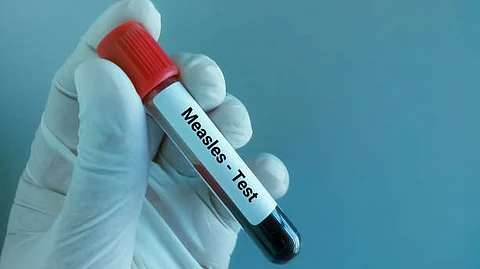

According to the World Health Organization (WHO), measles cases have skyrocketed globally, with a staggering 10.3 million people infected in 2023 alone. This alarming surge underscores the need for intensified efforts to combat the highly contagious and potentially deadly disease.
Key Statistics:
10.3 million Measles cases reported globally in 2023.
207,500 measles-related deaths in 2023.
22 million children missed their first measles vaccine dose in 2023.
85% of children received the first dose of measles vaccine in 2023.
95% vaccination coverage target.
Devastating Consequences:
The measles epidemic has led to death of the majority being children under the age of five. This devastating toll highlights the critical importance of vaccination in preventing measles-related deaths and complications.
Measles vaccine has saved more lives than any other vaccine in the past 50 years. To save even more lives and stop this deadly virus from harming the most vulnerable, we must invest in immunization for every person, no matter where they live
Dr Tedros Adhanom Ghebreyesus, WHO Director-General
Decline in Vaccination Rates:
The WHO attributes the measles resurgence to declining vaccination rates in many countries. In 2023, only 85% of children received the first dose of measles vaccine, falling short of the 95% coverage target. Furthermore, 22 million children missed their first measles vaccine dose, leaving them vulnerable to infection.
The WHO emphasizes that measles elimination requires a collective effort. Governments, healthcare providers, communities, and individuals must work together to prioritize vaccination, improve healthcare infrastructure, and protect vulnerable populations from this preventable disease.
Conflict Zones and Weak Health Systems:
Conflict zones, fragile health systems, and displaced populations have created fertile ground for measles outbreaks. Countries such as Afghanistan, Somalia, and Syria have struggled to contain the spread of the disease due to ongoing conflicts and disrupted healthcare services.
In response to the crisis, the WHO is urging governments, healthcare providers, and communities to:
Strengthen vaccination programs and improve coverage.
Enhance surveillance and outbreak response.
Address underlying factors, such as conflict and displacement.
Promote public awareness and education.
The number of measles infections are rising around the globe, endangering lives and health
(Input From Various Sources)
(Rehash/Neha Kamble)
